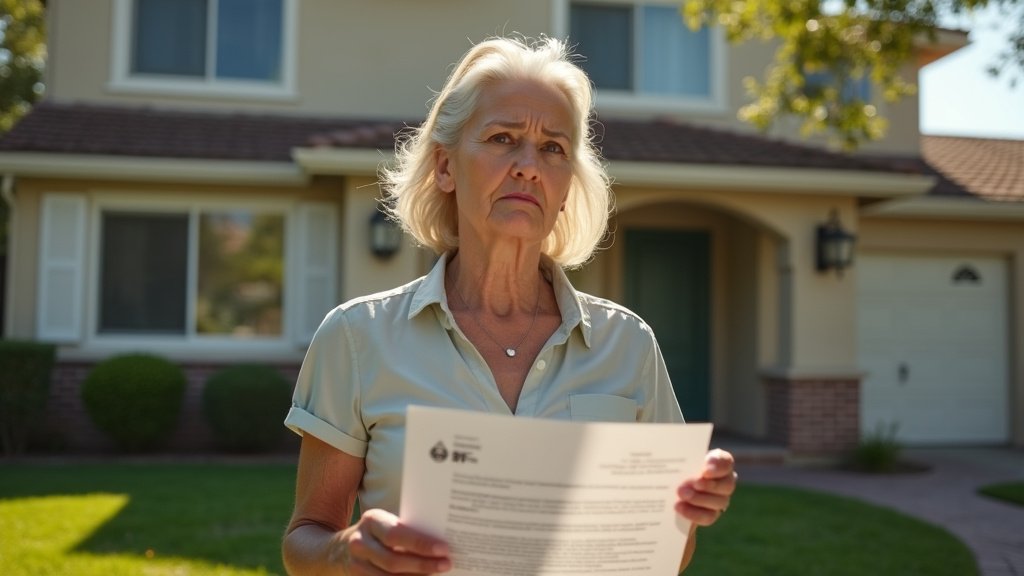A significant legislative shift in California is reshaping the power dynamics between Homeowners Associations (HOAs) and residents, offering a crucial reprieve for those caught in the crosshairs of stringent community rules. At the forefront of this change is a new state law that has drastically altered how HOAs can levy penalties, providing much-needed relief to one homeowner in particular who found herself facing a staggering $500 daily fine for an unapproved door renovation.
The Heavy Hand of HOA Fines
For months, this homeowner, whose identity remains private, endured the escalating financial burden of substantial penalties. The offense? A modification to a doorway within her own home that had not received prior HOA approval. Such regulations, while intended to maintain aesthetic uniformity and property values, can sometimes result in disproportionately severe consequences for minor infractions. In this homeowner’s case, the daily accrual of fines threatened to spiral into unmanageable debt, highlighting a systemic issue where HOA enforcement could lead to significant hardship for residents.
A New Law Brings a Capped Penalty
The landscape for homeowners dealing with HOA disputes has been dramatically altered by the recently enacted California law, which officially took effect on July 1st. This pivotal legislation has capped the maximum penalty an HOA can impose for such violations. Previously facing daily fines of $500, the homeowner in question now finds herself subject to a maximum penalty of just $100. This represents a significant reduction in financial exposure and a powerful affirmation of homeowners’ rights against what many consider overly aggressive enforcement tactics.
This legal amendment is being hailed by legal experts specializing in HOA disputes as a necessary course correction. These lawyers, often vocal critics of unchecked HOA authority, view the cap as a vital safeguard against financially ruinous penalties for relatively minor or subjective violations. The $100 cap is seen as a more reasonable and proportionate response, ensuring that homeowners can rectify issues without facing the threat of bankruptcy.
Shifting Perspectives: HOA Lobbyists’ Concerns
While many homeowners and their advocates are celebrating the new law, the reaction from HOA lobbyists offers a contrasting perspective. Representatives for HOAs have expressed concerns that the legislation might inadvertently encourage homeowners to disregard community rules and covenants. Their argument centers on the idea that the reduced penalty structure could diminish the deterrent effect of fines, potentially leading to a decline in adherence to established community standards. HOA lobbyists emphasize that their role is to maintain the collective well-being and appearance of the community, and that effective enforcement mechanisms are crucial to achieving these goals.
Internal Dispute Resolution: A New Avenue for Homeowners
Beyond the capping of fines, the new California law introduces another critical provision: the right for homeowners to request internal dispute resolution. This means that if a homeowner disagrees with an HOA board’s findings following a hearing, they can now formally request a structured internal process to resolve the disagreement. Advocates for this change believe it will significantly curb overly aggressive HOA practices by introducing a layer of accountability and fairness.
This new dispute resolution mechanism is designed to provide a more accessible and less adversarial path for homeowners to challenge HOA decisions. It aims to empower residents by giving them a clear process to voice their concerns and seek a resolution without immediately resorting to costly external legal battles. The expectation is that this will foster more transparent and equitable interactions between HOA boards and the communities they serve.
Broader Implications for Homeowners Across Los Angeles and Beyond
The implications of this new state law extend far beyond individual cases, potentially impacting thousands of homeowners across Los Angeles and the wider California region. As communities continue to grapple with the balance between individual property rights and collective community standards, this legislation marks a significant step towards ensuring that HOA governance is both effective and fair. The featured homeowner’s experience serves as a powerful example of the struggles many face, and the new law offers a beacon of hope for a more equitable future in HOA-resident relations. This development is being closely watched as a potential model for other states seeking to reform HOA regulations and protect homeowners from excessive penalties and disputes, ensuring that living in a managed community remains a positive experience for all involved.
Looking Ahead
The long-term effects of this legislation will undoubtedly unfold in the coming months and years. However, the immediate impact is clear: a tangible shift in power that offers greater protection and recourse for homeowners facing daunting HOA fines. This featured change in California law signifies a commitment to fairness and a recognition that community living should not come at the expense of undue financial distress or an absence of due process for residents.





